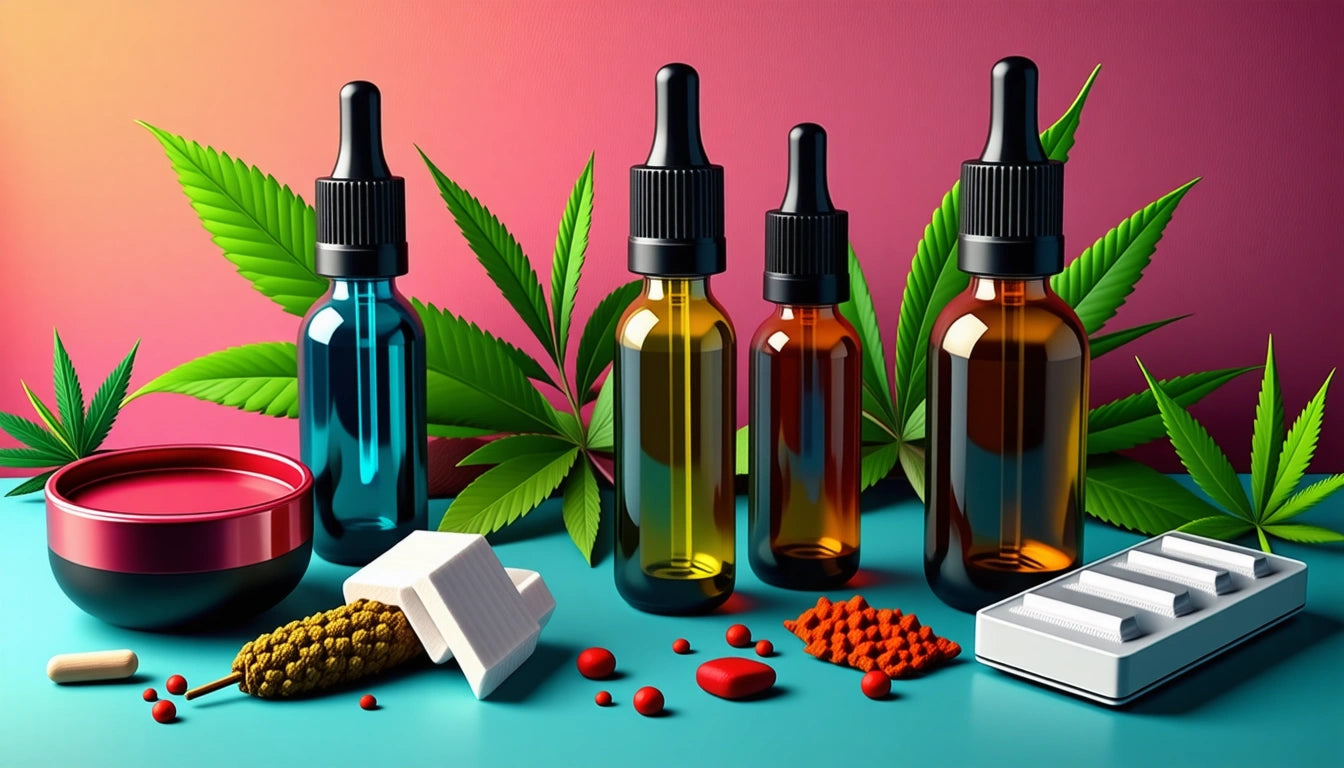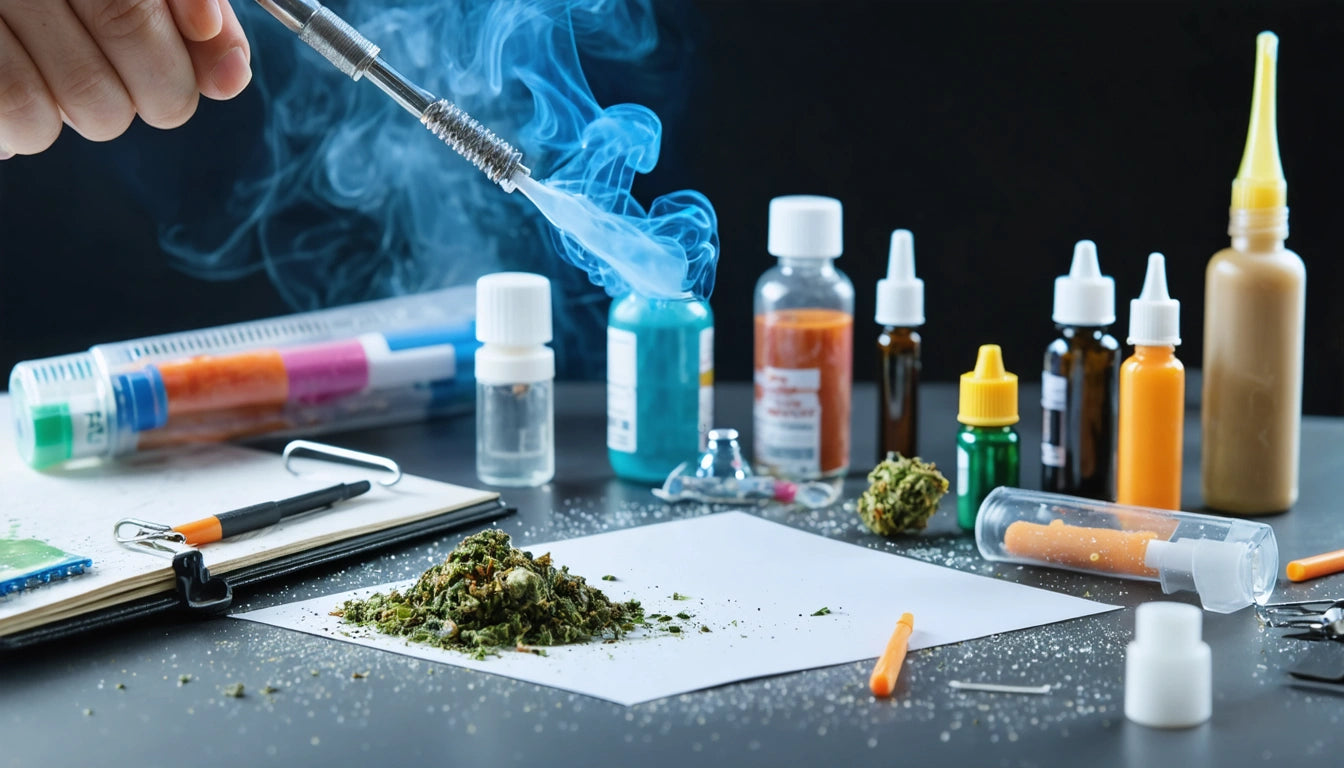Table of Contents
- TSA Regulations on Gummies and Food Items
- Regular vs. THC Gummies: Understanding the Differences
- Can TSA Detect THC Gummies? Understanding Security Measures
- Legal Considerations When Traveling with Cannabis Products
- Best Practices for Traveling with Gummies
- Smart Travel Recommendations for Cannabis Consumers
Bringing Gummies Through TSA: What You Need to Know
Air travel can be stressful enough without worrying about whether your favorite snacks will make it through security. For many travelers, gummies are a convenient, portable treat for flights. However, when those gummies contain THC, the situation becomes considerably more complex. This guide examines TSA regulations, detection capabilities, and best practices for travelers considering bringing gummies through airport security.
TSA Regulations on Gummies and Food Items
The Transportation Security Administration (TSA) allows passengers to bring food items, including regular gummies, through security checkpoints. These items must follow the standard 3-1-1 liquids rule if they're not solid, but most packaged gummies easily comply with these requirements.
However, the TSA's stance on cannabis-infused products is different. According to their official policy, TSA security officers do not specifically search for marijuana or other illegal drugs, but if they discover substances that appear to violate federal law during the screening process, they will refer the matter to law enforcement.
As noted in this comprehensive guide, the TSA focuses primarily on security threats rather than drug enforcement. Their screening procedures are designed to detect potential threats to aviation security, not to find personal amounts of cannabis products.
Regular vs. THC Gummies: Understanding the Differences
From a visual perspective, THC gummies often look identical to regular candy gummies. This similarity creates both confusion and opportunity:
- Regular gummies are permitted through TSA with no restrictions beyond standard food guidelines
- THC gummies contain cannabis extracts that remain federally illegal
- CBD gummies with no THC fall into a gray area but are generally less problematic
- Visual identification between these types is nearly impossible without packaging or testing
The packaging of THC products often includes specific labeling requirements that clearly identify the cannabis content. Many travelers transfer their gummies to unmarked containers, though this practice carries its own risks and legal considerations, as discussed in this article about flying with THC gummies.
Can TSA Detect THC Gummies? Understanding Security Measures
A common question is whether TSA can detect THC gummies during the screening process. Standard TSA screening equipment includes:
X-ray machines for carry-on bags cannot detect the chemical composition of foods or distinguish THC from regular gummies. These machines look for shapes, densities, and potential threats rather than specific chemical compounds.
Drug-sniffing dogs at airports are typically trained to detect explosives rather than cannabis, though some may be trained for drug detection. However, properly sealed edibles generally emit minimal odor compared to flower cannabis.
As explained in this resource on TSA detection capabilities, the primary risk comes from obvious packaging or labels that identify the product as containing cannabis, not from the ability to detect the THC itself.
For those concerned about child safety at home, our specialized child-resistant packaging solutions provide security while remaining discreet for travel purposes when properly transferred.
Legal Considerations When Traveling with Cannabis Products
The legal landscape for cannabis products varies dramatically:
- Federal law classifies cannabis as a Schedule I controlled substance
- State laws range from fully legal recreational use to strict prohibition
- International travel with THC products is prohibited virtually everywhere
- Crossing state lines with cannabis products constitutes interstate trafficking under federal law
Even when traveling between two states where cannabis is legal, crossing state lines with THC products technically violates federal law. This creates a complex legal situation where the risk level depends on various factors including quantity, packaging, and individual officer discretion.
As detailed in this overview of legal status across jurisdictions, travelers should research both departure and arrival location laws before considering traveling with cannabis products.
Best Practices for Traveling with Gummies
For travelers with regular, non-THC gummies:
- Keep them in original, factory-sealed packaging when possible
- Place them in your carry-on bag for easy access during screening if questioned
- Be prepared to dispose of food items if requested by security personnel
For those considering traveling with THC gummies despite the risks:
- Understand that this remains federally illegal regardless of state laws
- Never travel internationally with cannabis products
- Research the legal status at both departure and destination locations
- Consider legal alternatives like CBD gummies (with no THC) where appropriate
Many experienced travelers opt to simply purchase products at their destination rather than risk transporting them, as mentioned in this guide to navigating TSA regulations.
Smart Travel Recommendations for Cannabis Consumers
For cannabis consumers, several alternatives exist that may better serve their needs while traveling:
Consider CBD products with no THC content, which face fewer legal restrictions and are available in many locations nationwide. These products provide some of the benefits without the legal complications.
Research your destination's cannabis laws and local dispensary options before traveling. Many legal states have dispensaries near major airports, eliminating the need to transport products.
For medical cannabis patients, investigate reciprocity laws that may allow you to purchase at your destination with your medical card, rather than bringing products from home.
The safest approach remains complying with federal regulations by not traveling with THC products across state lines or through federal security checkpoints. While detection risk may be low for small amounts of gummies, the potential legal consequences make this a significant consideration for responsible travelers.











Leave a comment
All comments are moderated before being published.
This site is protected by hCaptcha and the hCaptcha Privacy Policy and Terms of Service apply.